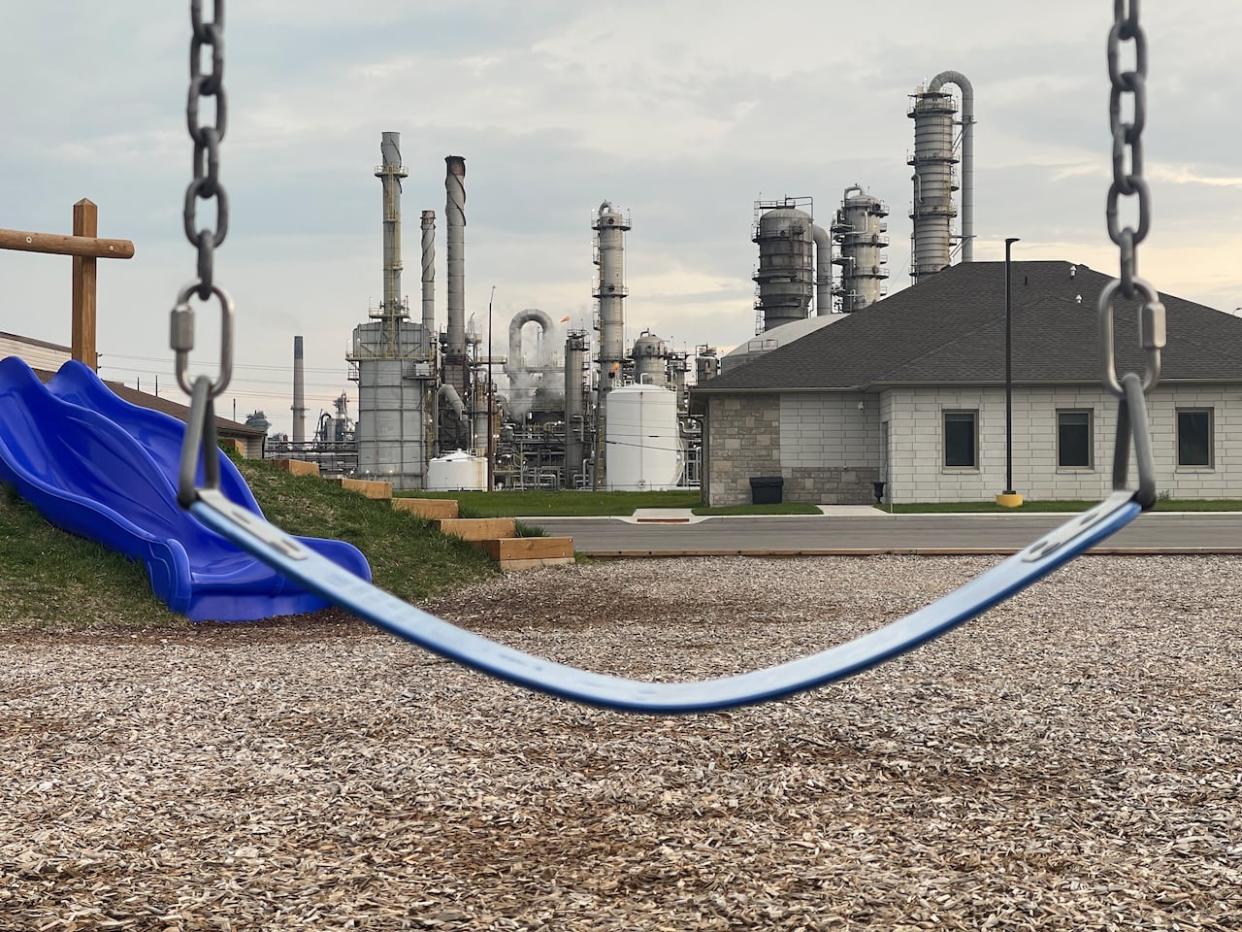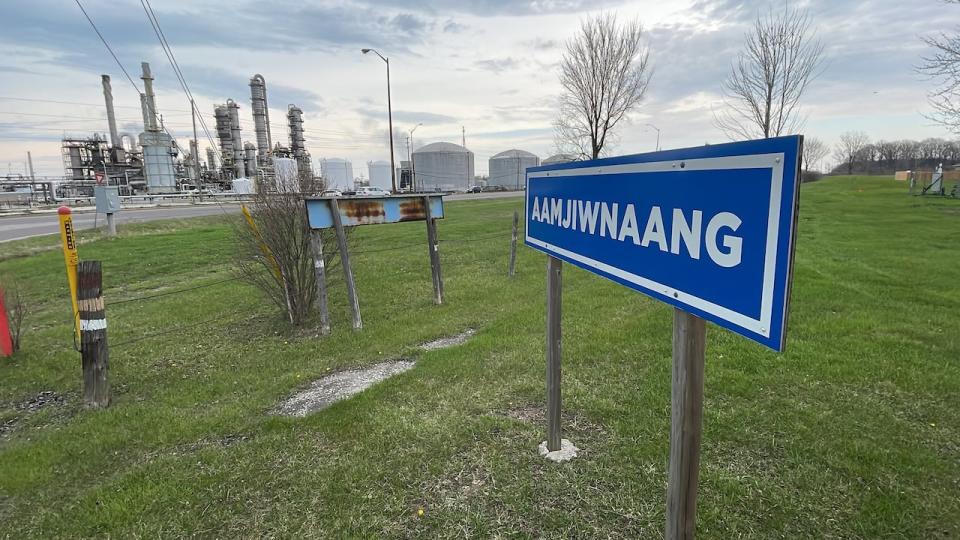Company sanctioned for benzene emissions near Ontario First Nation considers appealing shutdown

The company at the centre of a controversy over benzene levels in Sarnia, Ont., said last week it may appeal a decision to close the facility, even as the nearby First Nation closed its office again Monday citing high benzene levels.
INEOS Styrolution, the plastics chemical company located near the Aamjiwnaang First Nation band office, says its air monitoring data show no emissions exceeding limits of benzene in April.
However, the company's air monitoring and alert system notified the public on Monday that elevated emissions, meeting the threshold for a public alert, had been detected. In a statement Monday, the Ministry of Environment, Conservation and Parks (MECP) said it continued to be concerned about benzene levels from INEOS.
Last week the ministry suspended the company's environmental compliance certification, effectively closing the plant — though it had previously temporarily closed citing a maintenance issue. The May 1 order includes orders that must be in place for the facility to reopen.
The company says the timeline for the MECP orders is "unrealistic."
"Our engineers and technical teams have raised significant concerns about safety and elevated emissions if the Ministry insists on the ill-informed timelines contained in its May 1, 2024, order," the company said.
INEOS is considering appealing the order "to enable us to safely and effectively implement newly designed equipment systems on site, to meet the new emission standards, address the concerns of the Aamjiwnaang First Nation and to continue to serve the wider economic needs of Canada," the company said.
And, the company says, the closure of its Sarnia site could have economic implications.

Aamjiwnaang with INEOS operations in the background. (Chris Ensing/CBC)
"The Sarnia plant is now closed, the flow of all products into and out of the site is currently stopped and the plant cannot be restarted until the requirements set forth in the May 1, 2024, order is satisfied," the company said in a statement. "This will likely impact the refineries that produce most of Eastern Canada's gasoline."
The plant office uses benzene to create styrene, the raw material in polystyrene, which is used to make food containers, utensils, toys and some medical devices and has about 90 employees.
INEOS did not reply to a request for comment on Monday.
First Nation sets its own closure levels
On Friday, the First Nation issued what it called its own notice of violation to both INEOS Styrolution and the MECP saying that "prescribed limits ... are not our limits and the moment benzene emissions cross that road, our Aboriginal and inherent rights are impacted."
The First Nation closed its band office and sent employees home on April 16 after people became ill with headaches, nausea and dizziness, all symptoms associated with high levels of benzene. Several people told CBC News they went to hospital for treatment.
The First Nation, which did not return a request for comment Monday afternoon, continues to operate under a state of emergency. Its offices will remain closed on Tuesday.
Aamjiwnaang says it was not properly consulted on the order closing the facility before it was issued, but says it has been in contact with the company.
INEOS closure will impact 'integrated' Sarnia industry
Matthew Slotwinski, the interim CEO for the Sarnia-Lambton Economic Partnership, says while human and environmental safety is of the "utmost importance," the temporary closure of INEOS will have an impact.
"From an economic standpoint, it's disappointing when the manufacturing facility is unable to operate," he said. "Due to the integrated nature of the Sarnia-Lambton energy and chemistry cluster, this will certainly have impacts on other facilities within the local chemical chemical industry."
Slotwinski says some other companies send their benzene — a byproduct from their facilities — to INEOS, so they will likely move to contingency plans while the facility is shut down.
In a statement, the Ministry of Environment, Conservation and Parks says it remains "concerned about elevated levels of benzene emissions from the INEOS ... facility in Sarnia."
"Our priority is to protect human health and the environment, and despite several previous provincial orders requiring the company to take actions to improve their operations, levels of emissions continue to be too high," a spokesperson said in a statement, noting the suspension of the company's environmental compliance approval.
"This will ensure the facility, which is currently shut down for maintenance, fully addresses the causes and sources of their benzene emissions before operations can resume."
Issue raised at Queen's park
Windsor-Tecumseh Conservative MPP Andrew Dowie fielded a question from the NDP at Queen's Park on Monday about why the First Nation was not consulted about acceptable benzene levels
"Our government will not hesitate to take any further steps or compliance actions that may be required to protect people's health and the environment," Dowie said.
"We've been it's also been working on updates to the benzene technical standards for petrochemical and petroleum facilities, which will impose tougher requirements on facilities like INEOS. We're also working to strengthen the environmental penalties regulation so that more financial penalties can be imposed on bad actors."


